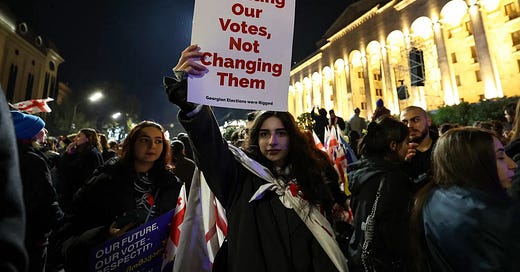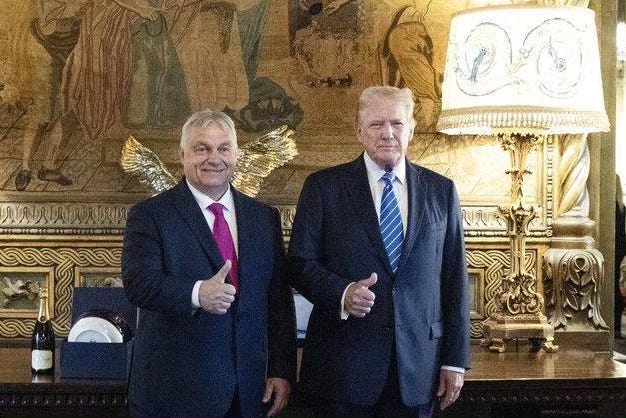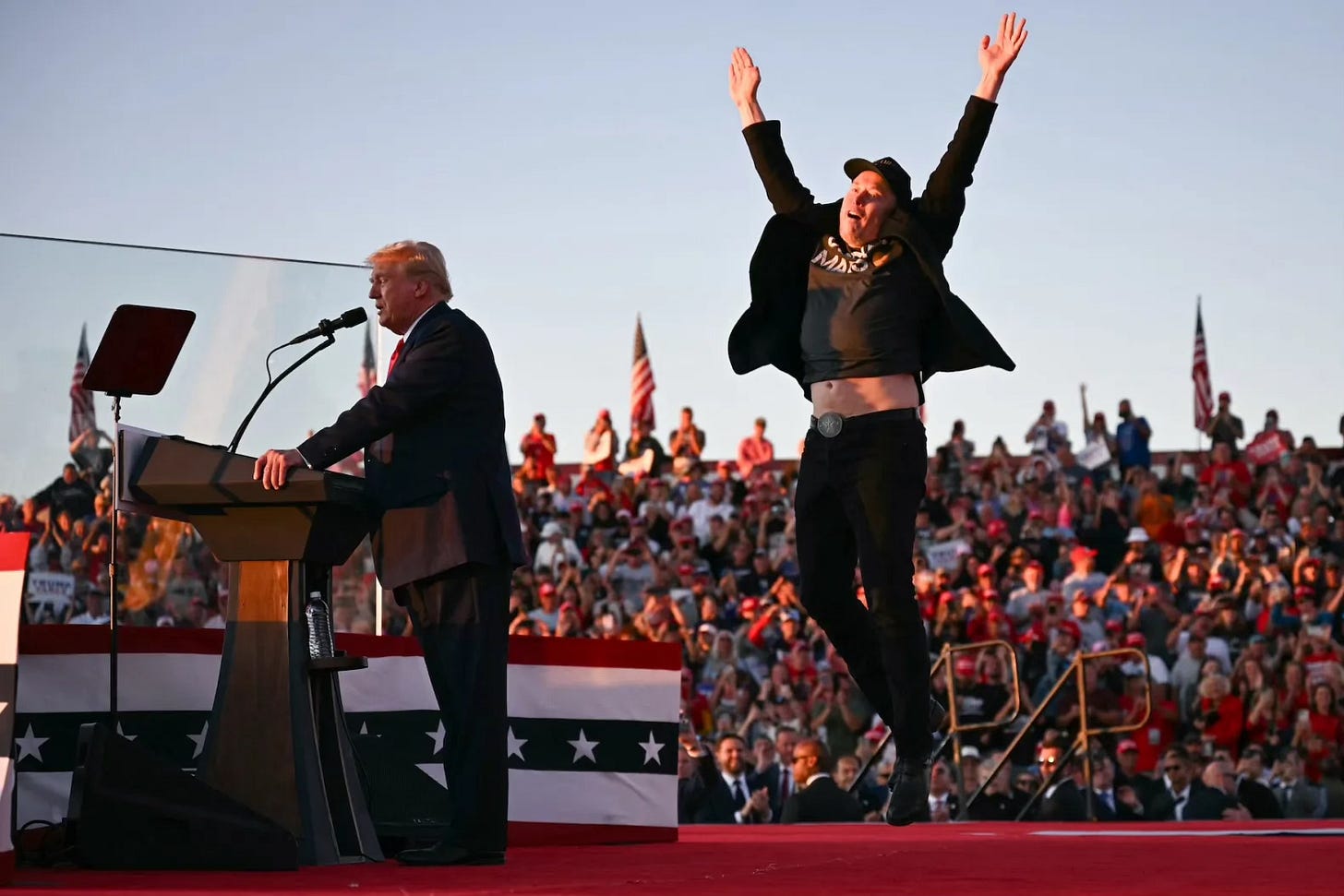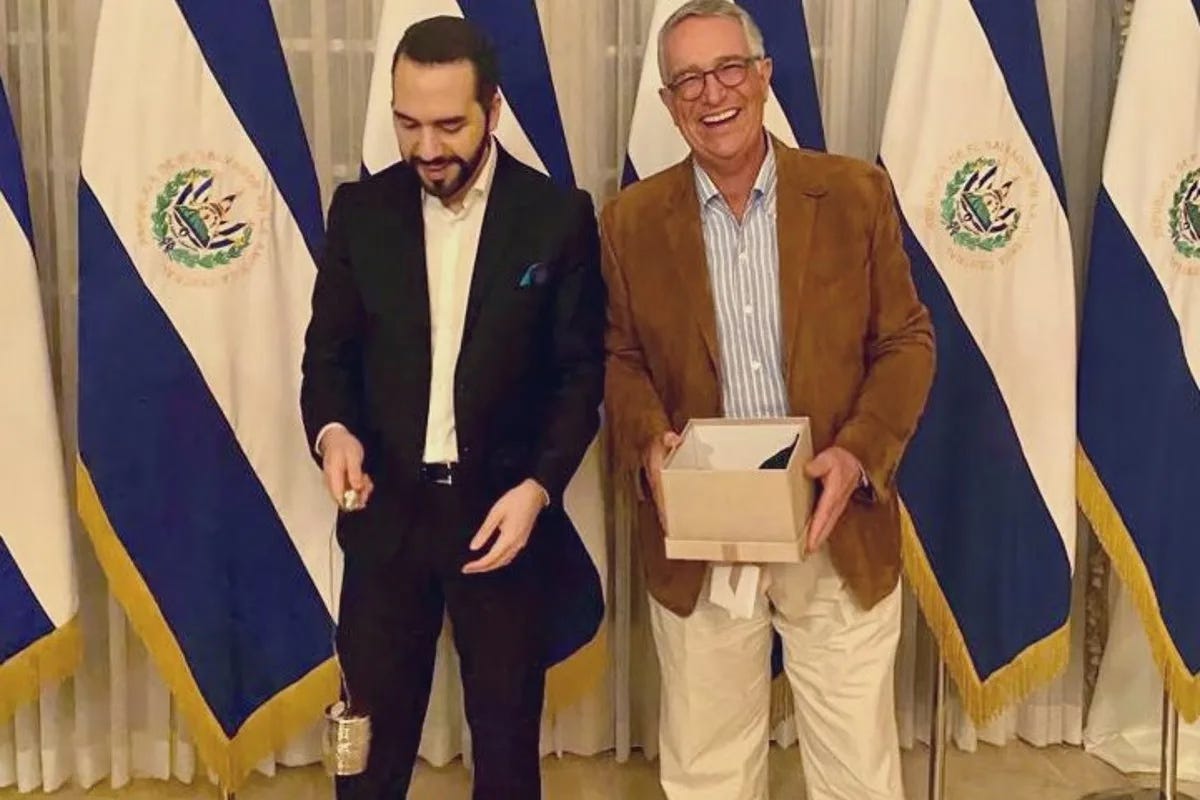Ivanishvili and Trump: The Past or the Future of Oligarchs?
MT799 Authenticated | Independent Contributors Column
Dear Subscribers,
Welcome to MT799 Authenticated, Barbershop Whispers….Russia's (BWR) independent contributors column, which is published on Wednesdays from time to time. The independent contributors are seasoned experts in Russian geopolitics, domestic politics, and business.
The views of MT799 contributors are their views and not necessarily the opinions of BWR or e8Q Technologies LLC.
Publisher’s Note:
Elections worldwide are facing public scrutiny. Americans’ faith in the US electoral system, the heart of American democracy, is eroding. Since last week, civil unrest in Georgia has been a daily occurrence due to questionable parliamentary election results favoring Ivanishvili’s Georgian Dream Party.
In light of the upcoming US presidential elections and the civil unrest in Georgia, we invited the two foremost global experts and authors on oligarchs to write about Donald Trump and Bidzina Ivanishvili, oligarchs at the center of the US and Georgian political systems.
The role and influence that oligarchs play in national elections is growing worldwide.
About the Authors:
David Lingelbach is a professor of entrepreneurship at The University of Baltimore. He lived and worked in Russia from 1994 to 1999, where he served as head of Bank of America’s businesses in the former Soviet Union and worked with Vladimir Putin.
Valentina Rodríguez Guerra is an author, oligarch researcher, and Ph.D. student at Facultad de Administración, Universidad de los Andes.
Their book, The Oligarchs’ Grip: Fusing Wealth and Power, was published by De Gruyter and shortlisted for a Business Book Award and a Goody Business Book Award. Their soon-to-be-published book, “The Oligarchs of the Americas: From the Conquistadores to Silicon Valley”, will be released in 2026. They established the Center for the Study of Oligarchs to study the important oligarch phenomenon.
Ivanishvili and Trump: The Past or the Future of Oligarchs?

With the likelihood of contested national elections in both Georgia and the United States, we’ve been reflecting on two oligarchs whom we’ve profiled before in BWR’s MT799 Authenticated and who are at the heart of those contests:
Bidzina Ivanishvili (Making Sense of Bidzina Ivanishvili, Barbershop Whispers…Russia, MT799 Authenticated Contributor’s column, 3 Jun 2024)
Donald Trump (Trump the Oligarch in Context - Eurasian Impact, Barbershop Whispers…Russia, MT799 Authenticated Contributor’s column, 30 Sep 2024).
Both have created and received considerable public attention, but do they accurately represent the oligarchs of tomorrow, or are they a dying breed?

To answer that question, we can start by comparing the two. Both are older white males whom we characterize as business oligarchs–they made their money first, then used that to acquire power. Their respective net worths are broadly similar–Ivanishvili’s is estimated at $6.2B, while Trump’s is estimated at $7.7B. Both have ties to another consequential oligarch, Vladimir Putin, and to some degree, those ties appear to have influenced their behaviors.

Their relations with Putin also link them to another consequential oligarch and the wealthiest person on the planet: Elon Musk. According to the Wall Street Journal, Musk has had several secret conversations with Putin since 2022. Musk is also one of Trump’s benefactors and a surrogate.

However, there are also significant differences between Ivanishvili and Trump. Their wealth profiles are very different. Ivanishvili’s wealth is very conservatively managed at present, with 86% held in cash, according to the Bloomberg Billionaires Index. Trump’s wealth has been volatile for much of his professional career, with several bankruptcies and more volatility now because 69% of his wealth is tied to the publicly listed Trump Media and Technology Group. The two oligarchs have made their money in very different ways. Ivanishvili’s wealth was self-made and generated mainly in Russia, outside his Georgian home country, through industry and banking. By contrast, Trump’s money was partially inherited and later invested by him in real estate and entertainment to generate more wealth.
Their power is also very different in type and scope. Ivanishvili is mainly agenda-setting in nature—he works behind the scenes to fund and otherwise control Georgian Dream, the political party he founded. He briefly had decision-making power as Prime Minister. Ivanishvili is, far and away, the most powerful and influential person in Georgia. By contrast, Trump’s power is severalfold–regarding decision-making, agenda-setting, and even in shaping the ways that Americans think and act. Ivanishvili’s power dominates Georgia but doesn’t extend beyond it.
Trump’s power is important in the United States and also projects abroad, influencing foreign politicians. For example, Hungarian Prime Minister Viktor Orbán has often praised Trump and his ideological positions, particularly as it relates to immigration and Putin’s war on Ukraine. Orbán also went out of his way to meet Trump at his home resort in Florida.
Of course, Georgia and the United States have very different oligarchal settings. Small economy versus largest economy in the world by nominal GDP. Weaker versus stronger formal institutions. A challenging neighborhood versus a relatively peaceful one further buffered by two oceans.
Having made these comparisons, how do Ivanishvili and Trump compare with other oligarchs? Here, their similarity to one another is stark. Both represent an oligarch model that is fading in comparison to emerging models. Two models are worth noting. First is the “Tech Bro” model, with variants expressed by the relatively demure Larry Page and the in-your-face Elon Musk.
The oligarchs that follow this model are substantially more wealthy and powerful than Ivanishvili or Trump will ever be, even if the latter regains the White House and its access to nuclear weapons. Why? Because the Tech Bro oligarchs have changed the way we think and act everywhere, all the time. They created AI-driven social media platforms influencing people's global views and beliefs. They have created virtual states with billions of followers. For example, Facebook, X, and Google have billions of daily users and most use these platforms as their primary source for news.
The second emerging oligarch model is what we call the “Snarkigarch”. Social media forward, mouthy, obnoxious, and loved by more and more. Nayib Bukele, El Salvador’s authoritarian president, is very effective at using X (Twitter) to shape the preferences of his “electorate”–the quotation marks acknowledge that his 2024 “re-election” was judged unconstitutional by almost all respected constitutional scholars.
Ricardo Salinas Pliego, one of Mexico’s wealthiest oligarchs, also uses X to promote his libertarian views and shares with Bukele a fondness for Bitcoin. Snarkigarchs are not as rich and powerful on average as the Tech Bros. However, both types, driven partly by accelerating technological development, are rapidly displacing the tired, old-school oligarch model represented by Ivanishvili and Trump.
In short, Page, Musk, Bukele, Salinas Pliego, and their brethren ensure a bright future for oligarchs. Ivanishvili and Trump–no matter what the election outcomes- and their sort will gradually fade away.
Additional Readings:
Making Sense of Bidzina Ivanishvili (BWR, MT799 Authenticated Contributor’s column, 3 Jun 2024)
How Nayib Bukele’s ‘Iron Fist’ Has Transformed El Salvador (Time 29 Aug 2024)
Ricardo, Mexico’s “Uncle Rich” Tweets his Wealth (Bloomberg Línea, 7 Mar 2023)
Trump the Oligarch in Context - Eurasian Impact (BWR, MT799 Authenticated Contributor’s column, 30 Sep 2024).
Vol 2, No 51 - BWR (MT799) 31.10.2024
Thank you for reading “Barbershop Whispers....Russia” written by Adam A Blanco! “Barbershop Whispers…Russia” is a product of e8Q Technologies, a consultancy with insights on all things Eurasia. Subscribe for free to receive new posts.









Very interesting, well written article. Is there any generally accepted definition of "oligarch"? All of the oligarchs mentioned in the article are very wealthy, influential and powerful (some, but not all, are politically powerful). But presumably not all wealthy, influential and powerful people are oligarchs. Would the following be considered oligarchs: Warren Buffet? Mark Cuban? Nancy Pelosi? Illinois Gov. JB Pritzker? Mark Zuckerberg? George Clooney?
Unfortunately I'm not familiar with your book, so perhaps it's explained elsewhere, but I'm having a difficult time getting past you repeatedly pointing to the famously low profile and apolitical Larry Page as an American "oligarch" in the same breath as Elon Musk, Ivanishvili and Trump. Doesn't there need to be some other dimension to what an "oligarch" is besides massive wealth? And while Google has certainly changed society, there's little (that I'm aware of) to show that Page is trying to directly influence and direct society the way Musk has. And while there might be bright futures for some "Tech Bros," the examples of Arkady Volozh and Oleg Tinkov, who both lost almost everything, suggests wealth and products that change the way people live and think, aren't necessarily power. Do you see any "new style" oligarchs emerging in Eurasia?